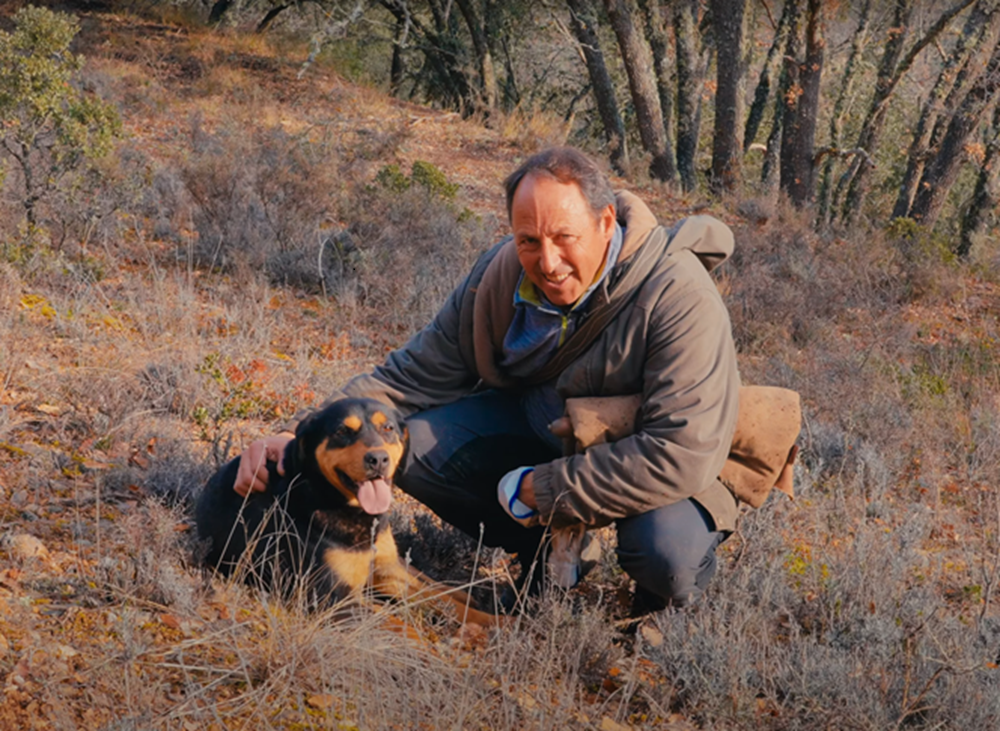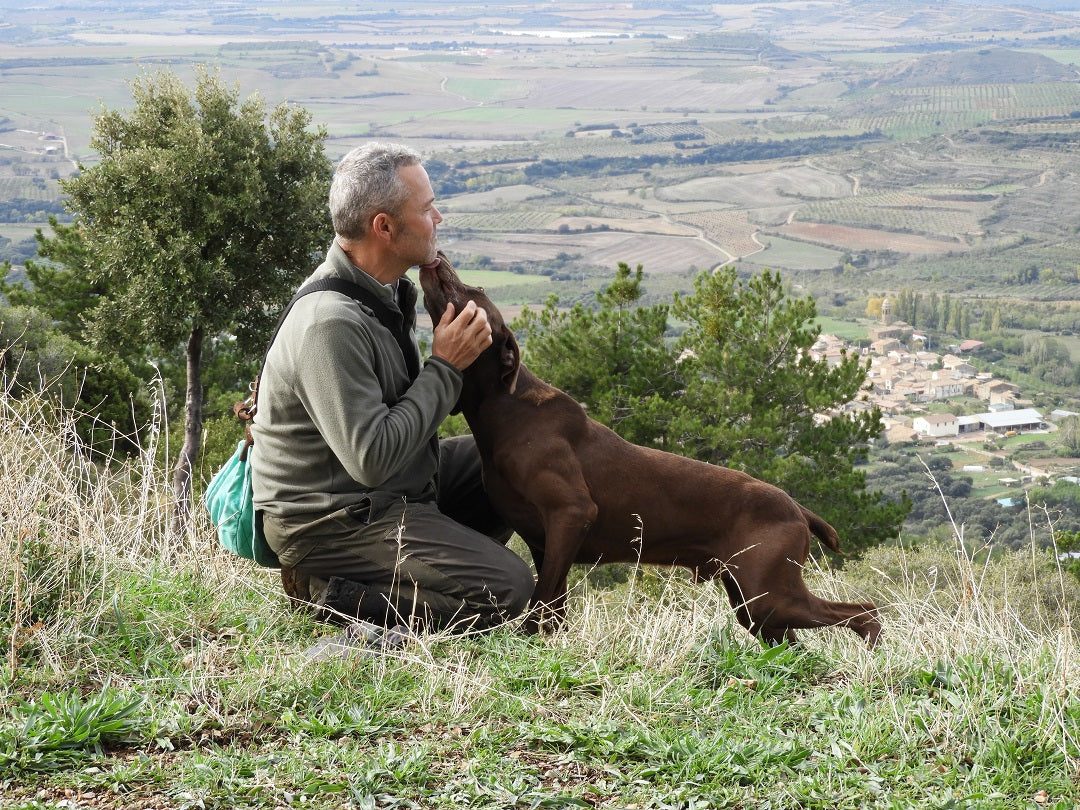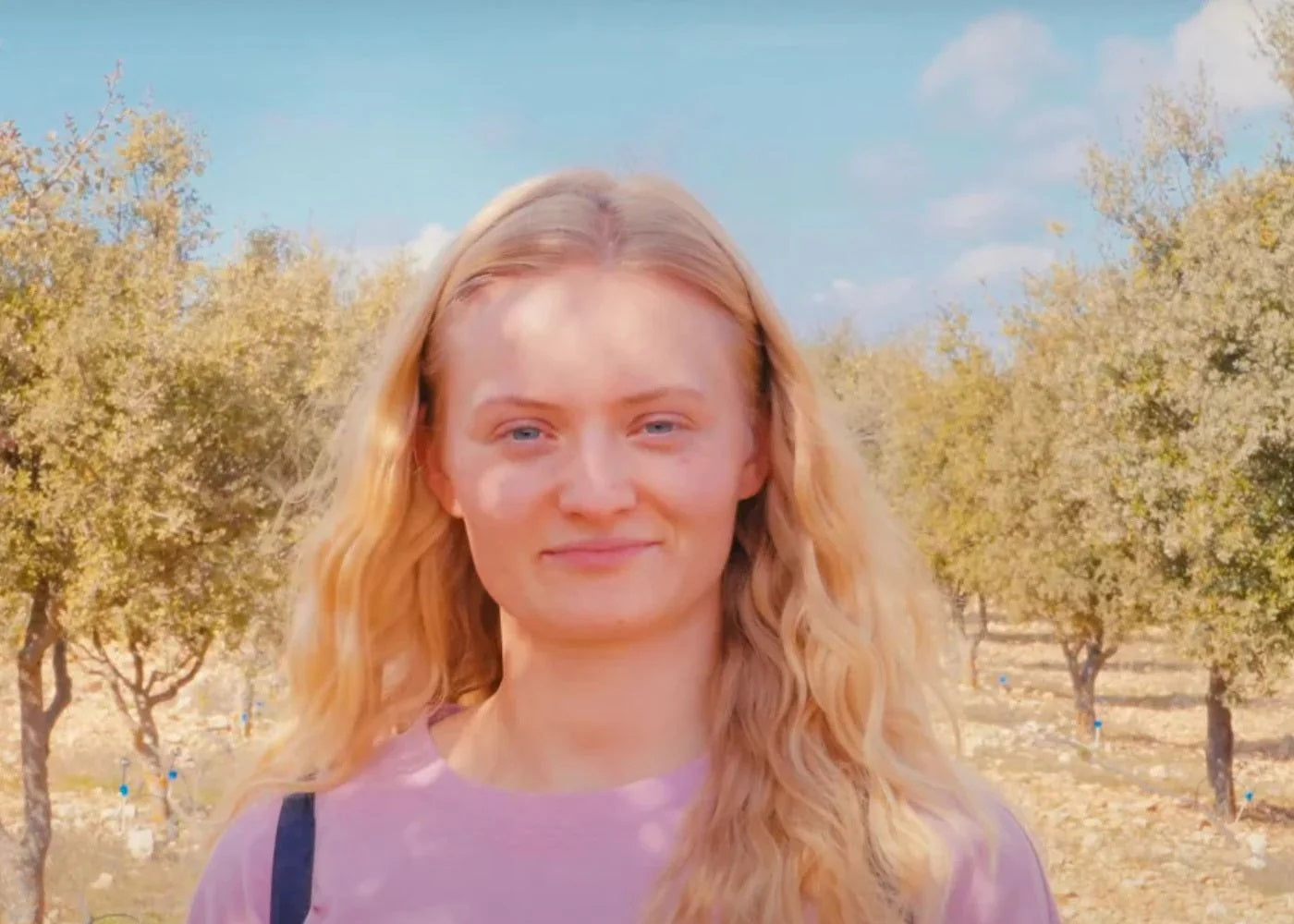Alberto Pascual has been searching for wild truffles in Soria and its surroundings for over 25 years. For him, this profession is much more than a job: it's a calling he inherited from his father and a way of life he values for the freedom of working in nature.
In this interview, Alberto tells us about the secrets to finding this precious fungus, the importance of having a good dog, like his faithful Rudy, and the challenges posed by climate change. Despite the decline in production, his passion for the countryside and truffles remains intact, and he maintains his faith in a profession that has been his life.
(If you prefer, you can watch the video interview by clicking here)
What do you do and how long have you been in the world of wild truffles?
I am Alberto Pascual. I've been involved in the wild truffle world for about 27 years in the province of Soria and its surroundings. For example, right now we are in the province of Zaragoza.
How did you get into truffle hunting?
I got into it as a child because I would come with my father for the Christmas holidays. I'd always spend a week with him, and I really enjoyed it, but I started doing it seriously in 1995, when I truly dedicated myself to truffles, first with him and then on my own.
What attracts you to this work compared to other professions?
I've tried working for a company, in an office, but I love being in the countryside, working outdoors, with all its pros and cons. I like being freer and doing things my own way. You have the freedom to decide, "today I'll go here, today I'll go there." It's freedom and responsibility, because you have to be responsible. Otherwise, you couldn't do this. You have to be responsible and say, "today I'm going here," and then you have to go and cover the whole area, whether it's cold, hot, or rainy (well, less if it's rainy). You have to adapt to the weather.
What kind of terrain and trees are best for finding truffles?
The area, of course, has to have holm oaks or oaks. You always look to see if there are burned patches or not, and then with the dog, he does the work of investigating whether there are any. But above all, there must be holm oaks and oaks, and suitable terrain. The soil composition is also very important, but when you go with the dog, he tells you if there are any or not—that never fails.

Tell us a little about your dog. What are his characteristics?
Well, Rudy is a very good dog, a really good one. He's hardworking, has an excellent sense of smell, and he loves to work. He never gets tired; he's a strong dog, which is what I need. Wild truffle hunting is very different from cultivated truffle hunting, because I have to go through the countryside, and the countryside is huge. We're talking about maybe 500,000 hectares that you have to cover, from one side to the other, walking all day in the mountains. As we've seen, you have to go up and down. In plantations, on the other hand, it's a more relaxed search. This dog just doesn't stop. You've seen it—he searches and searches and is very hardworking. Plus, he's obedient, and that's crucial out here in the wild, so he doesn't chase deer. Because if there's a deer nearby and the dog runs off with it for half an hour, forty-five minutes, or an hour, he comes back exhausted, he won't work, and he's no good anymore. We won't find anything.

How do you organize your truffle hunting season?
Here in Soria, the season is from December 1st to March 15th. So, during that period, I go out every day if I can. I have several places to go, several leased forest areas, and so I go to a different one each day. I rotate them, and it depends. If one has more production this year, I go more often. If another has less, I go there every 10 or 15 days, it depends. I like to go in the morning because the dog is rested and we are both rested, so we do well. When you're done, you come back and spend time with your family. I like to go in the morning, but some people prefer the afternoon—it just depends on the person. It's also colder in the morning.
Why do you prefer wild truffles over cultivated ones?
I've always been dedicated to wild truffles, and I like it. I like being out in the countryside. Well, I've lived this way my whole life, and besides, I don't know, it just has a special charm. I prefer the wild world to cultivation. Maybe I'll end up in cultivation, I don't know, but for now, I'm sticking with the wild.
Has the production of wild truffles changed in recent years?
The harvesting is more or less similar, but the production has dropped a lot. Before, you'd find truffles in many places where you now go and find none. The area is dead; there aren't any left.
How do you see the future of wild truffles?
I see the future as very complicated. Complicated because we've had dry, hot summers, and this negatively affects truffle production. The truffle grounds are suffering; they stop producing, and I don't know, I see it as very, very complicated.
Once you find the truffles, how do you store and sell them?
When I get home, I put the truffles in a refrigerated room to keep them at the right temperature. Then, in the middle of the week or whenever, I send them via a refrigerated courier to Laumont, and they arrive in the morning or whenever, and that's it.

What's your relationship with Laumont?
Well, my relationship with them started many years ago, with my father, back when José María from Laumont was young. Since we've worked with him our whole lives and sold him our truffles, I've continued to do so to this day. Laumont and I have a great deal of trust, a trust that has built up over many years. As a gatherer, it gives me peace of mind to know that I can send them the truffles I find, and I'm sure they will value them at the best possible price. That's why I'm relaxed and happy with them. I won't switch. There are other companies that tell me, "Hey, why don't you sell them to me?" And I tell them, "No, I'm with Laumont. I'm doing well, and I haven't changed."


